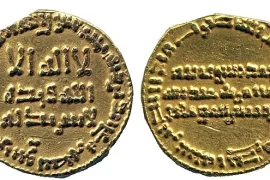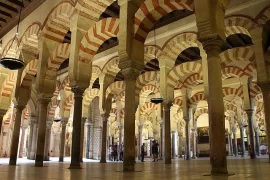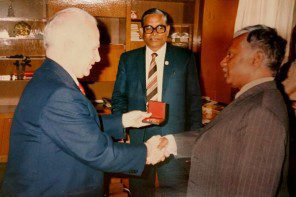Caliph al-Mamun, whose full name was Abu al-Abbas Abdallah al-Mamun ibn Harun, played a significant role in the history of the Abbasid Caliphate during the early ninth century. His biography is marked by a series of notable achievements and contributions, as well as controversies. He is famous as the Philosopher Caliph.
Early Life and Rise to Power
Al-Mamun was born in 786 CE, during the reign of his father, Caliph Harun al-Rashid. His early years were spent in the midst of the Abbasid civil war, which erupted due to disputes over succession. After the failure of Harun al-Rashid’s plan for succession, al-Mamun emerged as the sole Caliph following the death of his brother, al-Amin, in 813 CE. Al-Mamun initially ruled from Merv, in Khorasan, for six years, a distant province from the core of the Abbasid Empire.
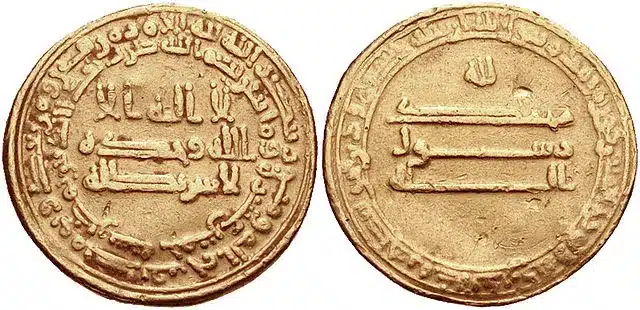
Recognizing the challenges of governing from a distant region, al-Mamun decided to return to Baghdad in 819 CE. This move marked the reestablishment of normal Abbasid rule in the capital city, but it was not without friction. His court culture from Merv clashed with the traditional Abbasid court in Baghdad, leading to tensions, including differences in court attire.
Military Campaigns
One of the significant aspects of al-Mamun’s reign was his military campaigns, particularly against the Eastern Roman Empire (Byzantine Empire).
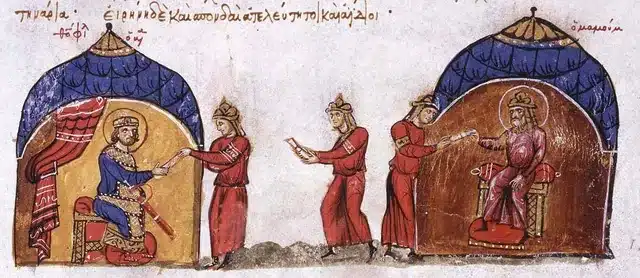
From 830 CE to 833 CE, he led annual campaigns against the Byzantines. During these campaigns, he negotiated for the acquisition of scientific manuscripts as a means to promote knowledge exchange.
In 833 CE, al-Mamun was eager to establish a lasting presence in Anatolia. He chose to seize the city of Tyana, known as Kemerhisar today. Interestingly, he enlisted troops from Syria for this campaign. However, the envisioned permanent territorial expansion eluded him.
Interest in Science and Knowledge
Caliph al-Mamun’s contributions to science were both substantial and far-reaching during his reign in the early ninth century.
He was a dedicated patron of scientific knowledge and actively promoted research and scholarship across various fields. Under his sponsorship, economic support and scholarship of the Bayt al-Hikmah (House of Wisdom) greatly increased.
Here are some of the notable ways in which he contributed to the advancement of science:
Measurement of the Earth’s Circumference
One of the most famous stories associated with al-Mamun’s interest in science is his attempt to measure the Earth’s circumference. He encountered Ptolemy’s work, which mentioned the Earth’s circumference as 180,000 stadia. Not having the exact length of a stadia, he commissioned a team of researchers to conduct new measurements. Their result estimated the Earth’s circumference at around 20,160 miles. While this measurement was not entirely accurate by modern standards, it demonstrated al-Mamun’s commitment to scientific inquiry.
Support for Astronomy and Geography
Al-Mamun showed a keen interest in astronomy and geography. During his time in Khorasan, he supported the education of the three sons of his astronomer, Musa ibn Shakir. These three brothers, known as the Banu Musa, went on to make significant contributions to mechanics and wrote the “Book of Ingenious Devices,” which contained numerous diagrams for innovative machines, some of which had lasting impact, such as the crankshaft.
Development of Algebra
Al-Mamun played a crucial role in the development and promotion of algebra. He sponsored the work of scholars like al-Khwarizmi, whose book “Al-Kitab al-Mukhtasar fi Hisab al-Jabr wal-Muqabala” laid the foundation for algebra as a distinct branch of mathematics. The term “algebra” itself is derived from al-Khwarizmi’s name.
Geographical Research
Al-Mamun commissioned the creation of a work on geography known as the “Geography of al-Mamun.” Although the original text has not survived intact, fragments and references suggest that it contained measurements and coordinates of important cities, including Mecca and Baghdad. Some of these measurements were surprisingly accurate and closely aligned with modern calculations.
Recognition
Al-Mamun’s contributions to science and knowledge left a lasting legacy. He is remembered not only for his achievements but also for his unwavering support of scholars and scientists during his rule. In recognition of his contributions, a lunar crater was named after him, highlighting his enduring impact on the scientific community.
Religious Controversy and the Mihna
During Al-Mamun’s reign, these theological debates were intensifying. He had been exposed to the idea of the Imam’s divine guidance since childhood and was sympathetic to it. Notably, he was from the Prophet’s family and aligned himself with the pro-Alid faction. In the last years of his reign, he began to promote the rationalizing theology of the Mutazila sect.
Al-Mamun took steps to actively influence Islamic jurisprudence and challenge the prevailing Sunni orthodoxy. He sought to be more than just a political leader; he aimed to function as a religious authority, similar to a Shia Imam. This ambition led to various controversial actions:
Property Restoration: Al-Mamun restored some of the property belonging to the Alids, who were descendants of Ali, the cousin and son-in-law of the Prophet Muhammad.
Legalization of Cursing: He legalized the public cursing of Muawiyah ibn Abu Sufyan, the founder of the Umayyad dynasty.
Theological Debate
The core of the theological debate initiated by Al-Mamun was whether the Quran was created by Allah or had always existed. Al-Mamun asserted that the Quran was created and could be subject to interpretation as societal contexts changed. In contrast, those who believed in the Quran’s eternal existence viewed it as beyond interpretation.
This theological dispute culminated in what was known as the Mihna, meaning “test” or “trial.” In 833 CE, Al-Mamun issued a letter from Raqqa, questioning the beliefs of officials, scholars, and the judiciary regarding the createdness of the Quran. Those who resisted initially faced execution but later changed their positions for fear of retribution. Only two individuals, including Ahmad ibn Hanbal, remained steadfast in their beliefs.
Despite these efforts, Al-Mamun’s theological initiatives ultimately failed to reshape the core of Islam or the Abbasid Caliphate. Today, he is considered a Sunni caliph, and the Mihna is viewed as a moment of misguided deviance rather than a systemic change within Islam. Abbasid caliphs are not referred to as Imams; instead, the term is reserved for the founders of the four main Sunni schools of thought, while the Shia continue to recognize Imams as descendants of the Prophet. Ultimately, the Sunni tradition prevailed over Al-Mamun’s theological endeavors.
Legacy and Death
Al-Mamun’s reign contributed to the ongoing theological and jurisprudential divisions within Islam, particularly the schism between the Sunni and Shia branches. Despite his efforts to influence Islamic jurisprudence, the Mihna ultimately failed to reshape the core of Islam, and Sunni orthodoxy prevailed.
Al-Mamun passed away on August 9, 833 CE, during a military campaign near the modern-day town of Pozanti in Turkey. His tomb is in the Grand Mosque of Tarsus, Adana.
His death led to a complex succession issue, with his son, Abbas, initially stepping aside in favor of al-Mamun’s brother, Abu Ishaq, who assumed the regnal title al-Mutasim.
In retrospect, Caliph al-Mamun is famous not only for his contributions to science but also for his attempts to shape theological discourse in the Islamic world. His reign remains a notable chapter in the history of the Abbasid Caliphate, marked by both achievements and controversies.

